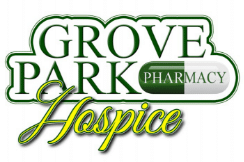COPD, or chronic obstructive pulmonary disease, is a sometimes silent illness that people often don’t realize that they have until they experience severe symptoms. In honor of National COPD Month in November, take a look at some of the symptoms of COPD and see if your elderly family member might need to talk to her doctor about it.
Ongoing Cough without a Cause
It’s irritating to have a cough and not know where it originated, but many people with COPD find that is the case for them. They haven’t been sick, but yet there’s this nagging cough. Your elderly family member might also experience changes with that cough, such as increased mucous at times that varies in thickness. The cough may lessen at times, but it may not go completely away.
Shortness of Breath
A massive problem for people with COPD is that they can’t seem to draw in the air that their bodies need. This results in feeling short of breath, even when they’re not doing anything terribly taxing. Being short of breath can keep your senior from doing all sorts of normal daily activities. Hiring hospice care providers can help, because they can take over those tasks for your senior and allow her to save her energy.
Wheezing with Activity or at Rest
Beyond problems getting enough air, your senior may find that she starts to hear wheezing as she breathes, whether she’s doing something or she’s merely resting. This is a sign that her airways are constricted and that some air is getting through, but not as much as she truly needs. Sometimes the wheezing may seem to go away, but for many people with COPD the wheezing is a constant companion.
Chest Pain or Tightness
Something else that your elderly family member might be experiencing could be pain or tightness in her chest. This is often mistaken for heart problems, because it all happens in the same general area. That tight feeling might get worse as your senior breathes and for some people with COPD that tightness keeps them from being able to draw in a full breath.
The best thing to do if you suspect that your elderly family member might have COPD is to talk with her doctor. Her doctor can run tests that look at her lung function and how well her body takes in and uses oxygen. Treatments for COPD can greatly improve your elderly family member’s quality of life, even if they can’t cure the disease altogether.
If you or your aging loved one could benefit from Hospice Care in Branchville SC, contact the caring staff at Grove Park Hospice, (803) 536-6644.
- What Is Terminal Lucidity and How Does End of Life Care Help? - October 20, 2023
- Strategies for Family Caregivers to Manage Anticipatory Grief - October 9, 2023
- Tips for Speaking at a Family Member’s Funeral - September 25, 2023


